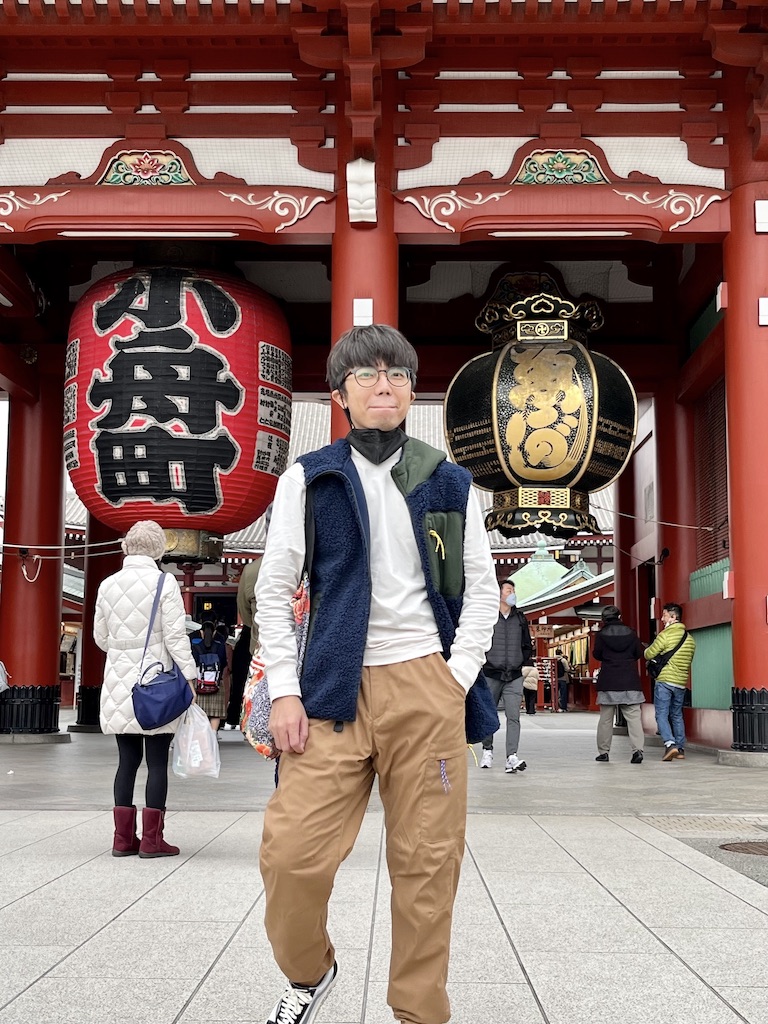Not going to lie, I was a little anxious about my first international trip since the pandemic started. Not least because I wasn’t sure what to expect with the airport and COVID-19 protocols (don’t worry, they are easy breezy now) but more so about the fact that I’m traveling with my senior citizen parents.
The decision to revisit Japan’s popular “Golden Route” was largely based on the idea that I have two older companions who may not always have the luxury of nimble legs anymore but still have a keen sense of adventure. Historically, the itinerary between Tokyo and Kyoto traverses the old Tokaido path that allows travelers a taste of both the modern and the ancient sides of the country.

But first, a few reminders: The Land of the Rising Sun may already be open for tourism but you’ll need to fulfill extra requirements. Aside from the most obvious one (a visa), you’ll also need to utilize Visit Japan Web to smoothly enter the country.
It’s a web service where visitors encode and upload necessary information to get through quarantine, immigration, and customs faster. Sign up for an account, fill in all your details, upload the required documents such as the vaccination certificate, and you will get three QR codes you need to show at various points in any Japanese airport.
Historically, the itinerary between Tokyo and Kyoto traverses the old Tokaido path that allows travelers a taste of both the modern and the ancient sides of the country.
At Narita Airport where our Japan Airlines flight landed at a little past 8 p.m., there were helpful (Filipino!) staff who were waiting for arriving passengers to check the quarantine QR code before letting you proceed to the next checkpoints. As long as you have all three QR codes, you’ll be able to leave the airport in under an hour.
The Tokyo story
You can’t topple the capital of Japan. It’s way too massive of a megalopolis to even try to attempt this undertaking. But the rule of thumb is to always stay close to a train station—preferably where various lines converge.
We stayed at Guest House Wagokoro, a modern, family-run ryokan that’s a seven-minute walk from Nippori Station in Arakawa, just north of Ueno. The station is served by three lines, namely JR East (Yamanote, Joban, and Keihin Tohoku), Keisei (Keisei Main Line), and Toei (Nippori-Toneri Liner), which meant we had access to pretty much anywhere in Tokyo. If you’re coming from Narita Airport, you can take the 36-minute ride into the city via the Keisei Skyliner that stops at Nippori and Ueno Station.
Yanaka Ginza is a hidden gem
Arakawa, unlike some of the other wards I’ve stayed in, retains a rustic charm with glimpses of Tokyo’s nostalgic era. My favorite is Yanaka Ginza (a shitamachi or shopping street dating back to the 1940s) just opposite Nippori Station. Once out of the station head west, go down the famous Yuyake Dandan (“sunset staircase”), and cover the single street lined with small shops and businesses selling wares, goods, and produce at relatively affordable prices.
There’s even a makeshift stall of a lovely old man selling 3D postcards of the district for Y330 a piece right in front of the shoten (bookshop).
Now, a quick rundown of our favorite establishments:
First is Kanikichien, a shop that houses a collection of teas, ceramics, and kawaii products that make for fine souvenirs. And because Yanaka Ginza is home to plenty of cats (both strays and statues), expect feline items, too. Even my mom and dad enjoyed sifting through the cuteness filling the shelves.
After that, wander down the street and you’ll find some culinary highlights. At Yanaka Takobo, just off the main road, take a little takoyaki break. While a distinctly Osaka street food, the six-piece negi-mayo version (Y600) holds its own, especially in the chilly weather.
My favorite spot is Niku No Suzuki. The historic deli sells ground meat cutlets (beef or pork with onions and spices) fried like croquettes for Y250 per large piece. Everything is handmade and crispy on the outside and juicy on the inside.
A visit to Uniqlo Coffee and some pretty parks
After a day of exploring Tokyo’s traditional side, head on over to Uniqlo in Ginza. At the topmost level of the 12-story flagship is a minimalist cafe with hand drip original blend (Y200) and Geisha Bean (Y400) coffees, butter cookies (Y250), and bunneido dorayakis (Y250) you can enjoy at a space overlooking the street below.
Tokyo doesn’t just let you into its futuristic landscapes (Odaiba and Shinjuku) and fashionable districts (Shimokitazawa, Harajuku, and Omotesando), it also allows you to experience a range of emotions in its multicolored parks depending on which season you’ll be visiting.
One of our top picks is Ueno Park. The public park is a top destination during sakura season but setting foot into the park during autumn—with shades of burgundy, scarlet, gold, and brown—was also an experience.
Ueno Park is a place where even senior travelers could just bum around for half a day or more without getting bored, thanks to the number of attractions within the grounds. Make sure to visit museums like the Tokyo Metropolitan Art Museum and the National Museum for Western Art (which currently showcases pieces from Berlin’s Berggrühn Museum that include Picasso artworks).


